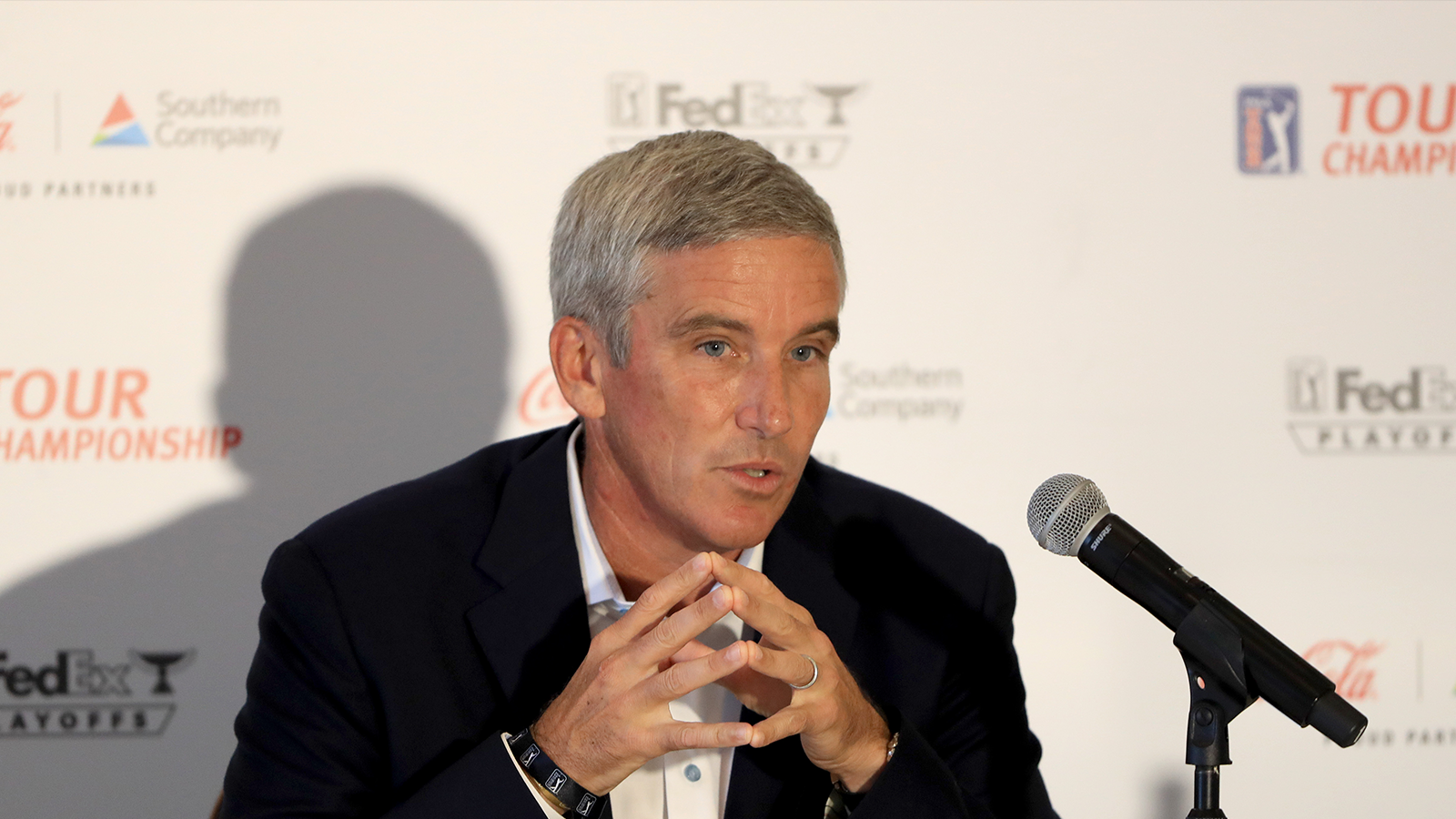Latest
Tour Reaches End of Season, Embarks on Plan Toward Diversity
By Doug Ferguson, AP Golf Writer
Published on

PGA TOUR Commissioner Jay Monahan speaks to the media prior to the TOUR Championship at East Lake Golf Club on September 02, 2020 in Atlanta, Georgia. Photo by Sam Greenwood/Getty Images
What started as the “Return to Golf” has yielded to “Crossing the Finish Line.”
Twelve weeks after the PGA Tour ended its longest stoppage since World War II because of the COVID-19 pandemic, it marked progress with two slogans that brought equal measures of satisfaction and a sigh of relief.
“I was confident that we had the right plan,” Commissioner Jay Monahan said Wednesday. “But I was uncertain as to whether or not, like everybody else, you'd be able to get to this point.”
That point would be the Tour Championship for the top 30 players who made it through two FedEx Cup postseason events to reach East Lake and chase the $15 million bonus that goes to the winner.
Monahan also brought up another monetary figure — a projected $100 million over the next 10 years for tournaments to donate to racial and social injustice causes in their markets.
“In essence, how do we use the platform that we’ve established over the past 80 years to make deeper and more specific commitments around social justice efforts in our communities?” he said. “The work may never be complete, but as we close out this season of change, I felt it important to reinforce our commitment.”
And what a season it has been.
The week the PGA Tour signed a new media rights deal said to be worth more than $7 billion over nine years, the coronavirus led to golf shutting down for three months. Tiger Woods, who won his record-tying 82nd tournament last fall, played only twice before the shutdown, four times after. He did not make it to the Tour Championship.
A record five players already have taken turns at No. 1 in the world.
Dustin Johnson is the No. 1 seed at East Lake with two victories since the return, along with runner-up finishes in the PGA Chamionship and last week at the BMW Championship. He starts with a two-shot lead over Jon Rahm, who made a 65-foot bending birdie putt in a playoff to beat Johnson last week.
No one should be surprised. They are Nos. 1 and 2 in the world ranking. Rahm was more surprised the tour reached its season-ending event without having to stop because of the coronavirus. Only seven players and three caddies tested positive in the 13 tournaments held in 12 weeks in 11 states.
“I'm not going to lie, when I saw ... pretty much 20% of the tests were positive countrywide, almost worldwide, and with how many other sports were having trouble ... nobody should be surprised if one week we show up and there'd 30 positives,” Rahm said.
“We can congratulate each other and everybody else for the good job we've done, because I am surprised we've been able to go on without any single problems.”
The Tour Championship is the end of the season, but not the end of the year, or the concern.
Spectators still have not been allowed to return, with no indication when that would happen. Monahan said the plan was for pro-ams — a big part of a tournament's revenue — to resume in the Dominican Republic in three weeks. Pro-ams already are in place on the PGA Tour Champions and the Korn Ferry Tour.
Monahan thought back to Friday the 13th — in March — when he announced the next four tournaments had been canceled, starting with The Players Championship.
“As gut-wrenching as that day and the weeks to follow were, as we ultimately canceled or postponed nearly 30% of our season, the adaptability, innovation, and collaboration that has brought us to this week is incredibly gratifying,” he said.
That includes the charity component, which has carried on without spectators, pro-ams or corporate hospitality. Monahan said supporting sponsors of the Tour Championship — Coca-Cola and the Southern Company — were enabling at least a $3.5 million contribution to local charities this week.
Monahan also said local tournaments and their charitable donations would be the backbone of the tour's pledge toward supporting diversity in a summer of intensified racial and social unrest.
PGA Tour events have raised more than $3 billion for charity since 1938, and that money — $200 million last year — goes mainly to local organizations.
“All of our tournaments are going to be identifying racial and social injustice causes in their local markets going forward,” Monahan said. “I think it’s a big statement that with the number of tournaments we have they all quickly have responded and said that they are excited for this opportunity, excited for this challenge.”
He said the tour expects to raise at least $10 million a year for those causes for the next decade, “and that's something that we're going to hold ourselves accountable to.”
He also said the tour would work toward attracting more minorities to golf through The First Tee, which currently has a great emphasis on education than the game, and with support of the Advocates Pro Golf Association Tour, created a decade ago to provide playing opportunities to minority players.
“It's nice to see stuff happening,” said Cameron Champ, one of four players of Black heritage on the PGA Tour and the only one to reach the Tour Championship. “Anyone can talk about it, but action is what's need. And it's amazing to see that. It's definitely a huge and amazing step in the right direction.”